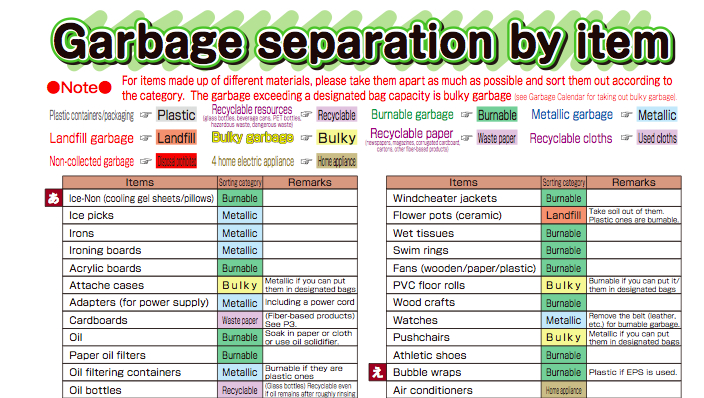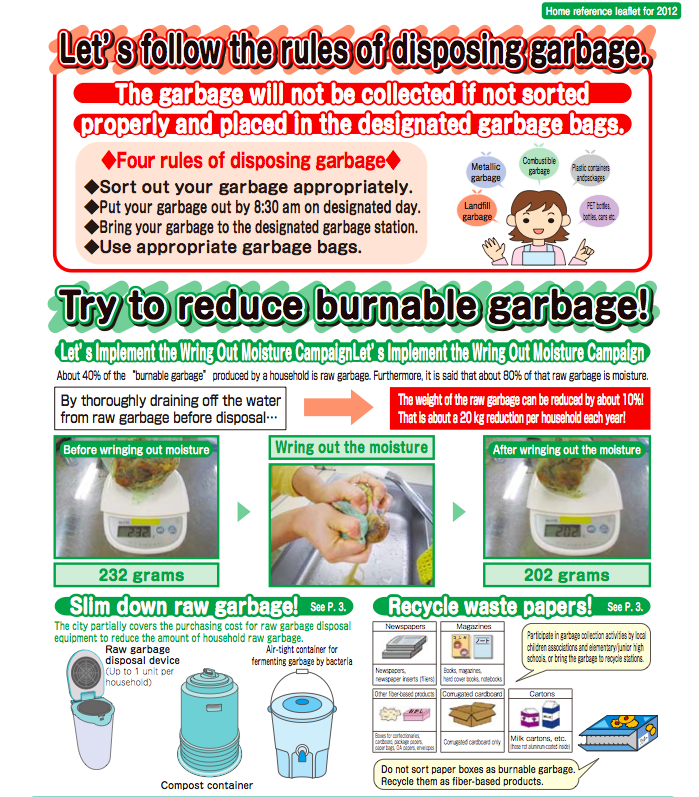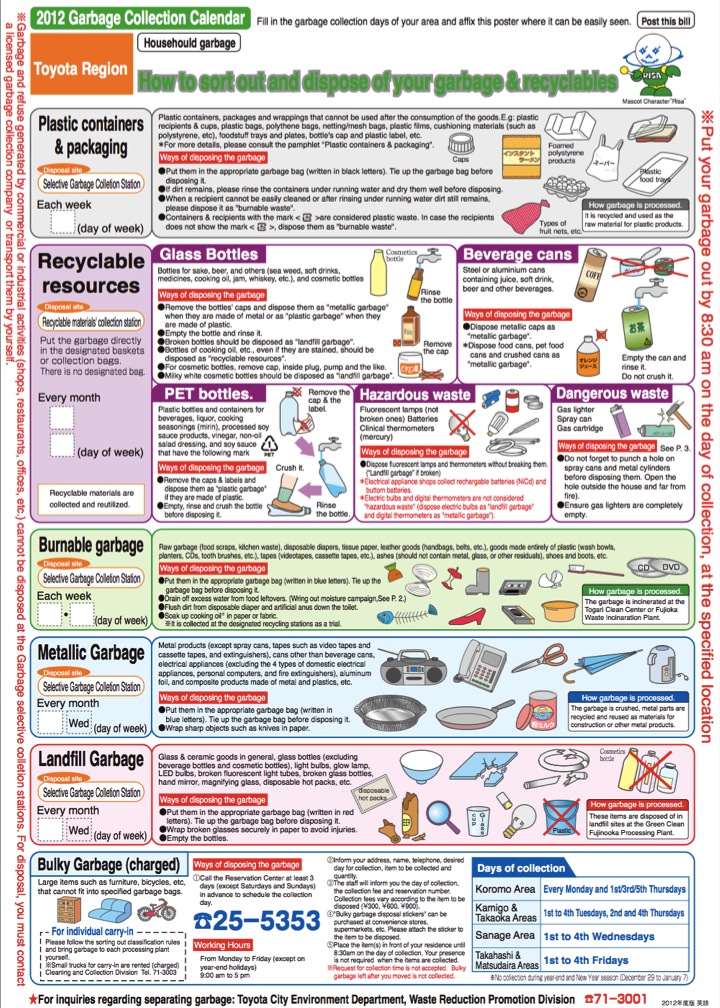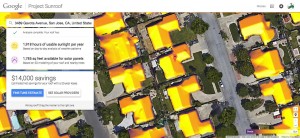Feeling inspired after the first client challenge for the Zero waste market I stumbled across an interesting article on the Internet about a small town in Japan – Kamikatsu. With a population of just over 1,500, the town is on a mission to become the country’s first ‘zero-waste’ community by 2020. Before 2003, the town was dumping trash and burning it in an open land fill, but it’s citizens were worried about the negative environmental and human impact that it was having. Now the town recycles about 80% of its trash, with the other 20% going towards a landfill.
What amazes me the most is that it is each resident’s responsibility to wash, sort, and bring their trash to the recycling center, the small town doesn’t even have a garbage truck or a collection system. This just goes to show the commitment and willingness of these citizens to make a change and some times it’s all it takes.
Fascinated by the system, I looked into the Japanese garbage collecting system and it is much more complicated than what we do here in Canada. Instead of the 3 categories (Recyclables, Compost and, waste) we have in Canada, in Japan there are at lease 6 categories.


Confused yet?

I guess the take away and conclusion is that there needs to be a combination of government policies, along with the avid support from citizens in order to make changes happen. What is truly motivating about this example is that we can see that zero waste can be achieved, we just need to have faith and take action.
